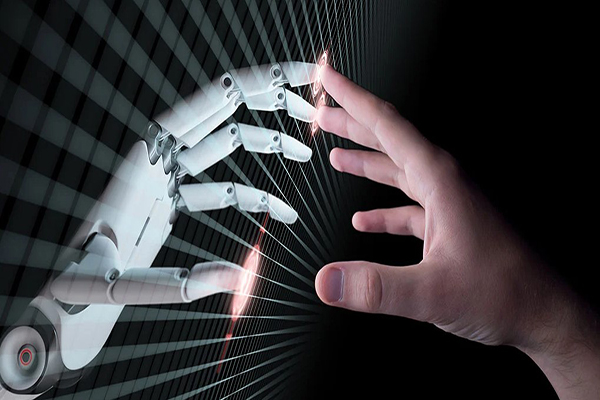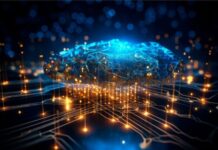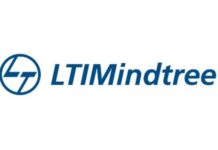In the era of Industry 5.0, AI plays a pivotal role in tailoring products and services to individual needs. AI algorithms analyze vast datasets to facilitate unprecedented levels of customization, ensuring products align precisely with consumer preferences. However, this integration is not without challenges. As AI-driven decisions influence privacy and biases, ethical concerns arise. AI’s effect is profound as Industry 4.0 progresses into Industry 5.0, pushing a paradigm shift toward networked, human-centric systems. As AI augments job functions, workforce dynamics evolve, prompting a shift in skill needs. Despite the limitations, AI promotes improved human-machine collaboration, opening up new avenues for efficiency and creativity.
In the advent of Industry 5.0, the role of Artificial Intelligence (AI) stands as a transformative force, driving unparalleled customization, personalization, and human-machine collaboration. Experts, including Balaji Viswanathan and Aditya Joshi, emphasize AI’s prowess in tailoring products, enhancing sustainability, and reshaping global teamwork. However, challenges loom, as ethical considerations demand attention in data privacy, algorithmic bias, and job displacement. Bhuvan Desai underscores the imperative shift in workforce dynamics, urging a proactive approach to upskilling. Dr. Sandeep Reddy Chitreddy highlights AI’s pivotal role in seamless human-machine collaboration, forging a path towards unprecedented innovation. Navigating Industry 5.0 demands a delicate balance between technological advancement, ethical principles, and evolving workforce dynamics.
Balaji Viswanathan, MD & CEO, Expleo India shared his views on customization and personalization of products and services in Industry 5.0, stating, In Industry 5.0, AI revolutionizes the customization and personalization of products and services by leveraging advanced data analytics. AI algorithms analyze vast datasets, extracting valuable insights into individual preferences, behaviours, and needs. This enables businesses to tailor offerings with unprecedented precision, meeting unique customer demands. From personalized recommendations in e-commerce to customized manufacturing processes, AI optimizes the entire product and service lifecycle. Its adaptive capabilities empower industries to create bespoke solutions, enhancing customer satisfaction and fostering a dynamic, customer-centric ecosystem in Industry 5.0.
He further added about the challenges and ethical considerations that arise with the increasing integration of AI that as AI becomes integral to Industry 5.0, challenges and ethical considerations emerge. Ensuring data privacy, addressing algorithmic bias, and managing job displacement are critical challenges. The reliance on vast datasets raises concerns about information security and potential misuse. Ethical considerations involve determining the accountability for AI decisions and preventing discriminatory outcomes. Balancing technological advancement with societal well-being requires robust regulations and transparent AI development processes. Striking this equilibrium is pivotal for fostering responsible AI integration in Industry 5.0, promoting innovation while safeguarding ethical principles and societal values.
Aditya Joshi CEO and MD at OpalForce said, AI is playing a pivotal role in the transition from Industry 4.0 to Industry 5.0, impacting various aspects. Industry 5.0 embraces a human-centric approach, utilizing AI to drive personalization, sustainability, and economic growth. AI enables mass customization, optimizes resource use for sustainability, and enhances decision-making through data analysis. Collaboration is improved with AI-driven technologies, fostering innovation and global teamwork. Supply chains become more resilient, worker safety is heightened, and quality control is enhanced. Ethical AI use is paramount in Industry 5.0, ensuring technological advancements align with human values and societal norms, marking a transformative shift from Industry 4.0.
Bhuvan Desai, VP – Client Operation, Uplers highlighted AI is fundamentally reshaping workforce dynamics and skill requirements, heralding a paradigm shift in the global labor landscape. Automation, driven by AI, is replacing routine tasks, freeing up human potential for more creative and complex endeavors. While this brings increased efficiency and productivity, it also necessitates a transformation in skill sets. The demand for digital literacy, data analysis, and AI proficiency is surging, compelling workers to adapt and upskill. Industry 5.0 emphasizes human-machine collaboration, requiring soft skills like adaptability, problem-solving, and critical thinking. Moreover, AI augments decision-making processes, demanding a workforce capable of interpreting and leveraging AI-generated insights. As organizations embrace smart technologies, a remote workforce emerges, comprising both humans and AI systems. Successfully navigating this evolution mandates a proactive approach to education and training, fostering a workforce capable of harnessing the symbiotic relationship between humans and AI in the ever-evolving landscape of the future of work. Aligned with this objective, at Uplers, we’re currently running a theme on AI, which spans across four stages: Awareness, Exploration, Experience, and Applicability. Over the next few months, our aim is to cultivate awareness among the Uplers community, empowering them to eliminate redundant or repetitive tasks through the use of AI tools.
Dr. Sandeep Reddy Chitreddy, HoD, Artificial Intelligence and Data Science, KLH Hyderabad Campus stated, AI enhances human-machine collaboration in Industry 5.0In the realm of Industry 5.0, artificial intelligence serves as the linchpin for transformative human-machine collaboration. AI seamlessly integrates into the industrial landscape, elevating our capacity for complex decision-making and problem-solving. By working alongside humans, AI becomes a stalwart ally in enhancing productivity and efficiency. The interconnectedness fostered by IoT devices amplifies this collaboration, creating a cohesive and intelligent manufacturing ecosystem. Industry 5.0 heralds an era where AI augments human capabilities, ushering in a symbiotic relationship that propels industries toward unprecedented levels of innovation and success.
In conclusion, Artificial Intelligence (AI) stands as the driving force behind Industry 5.0, revolutionizing how businesses operate and innovate. With its ability to analyze vast datasets, enhance decision-making, and automate processes, AI promotes a seamless integration of technology and human collaboration. Industry 5.0 marks a pivotal shift towards a more human-centric approach, where AI augments human capabilities, fostering creativity, efficiency, and sustainable growth. Embracing AI in Industry 5.0 not only propels technological advancements but also nurtures a harmonious synergy between machines and humans, shaping a future where innovation is boundless and industries thrive on the collective intelligence of both man and machine.















